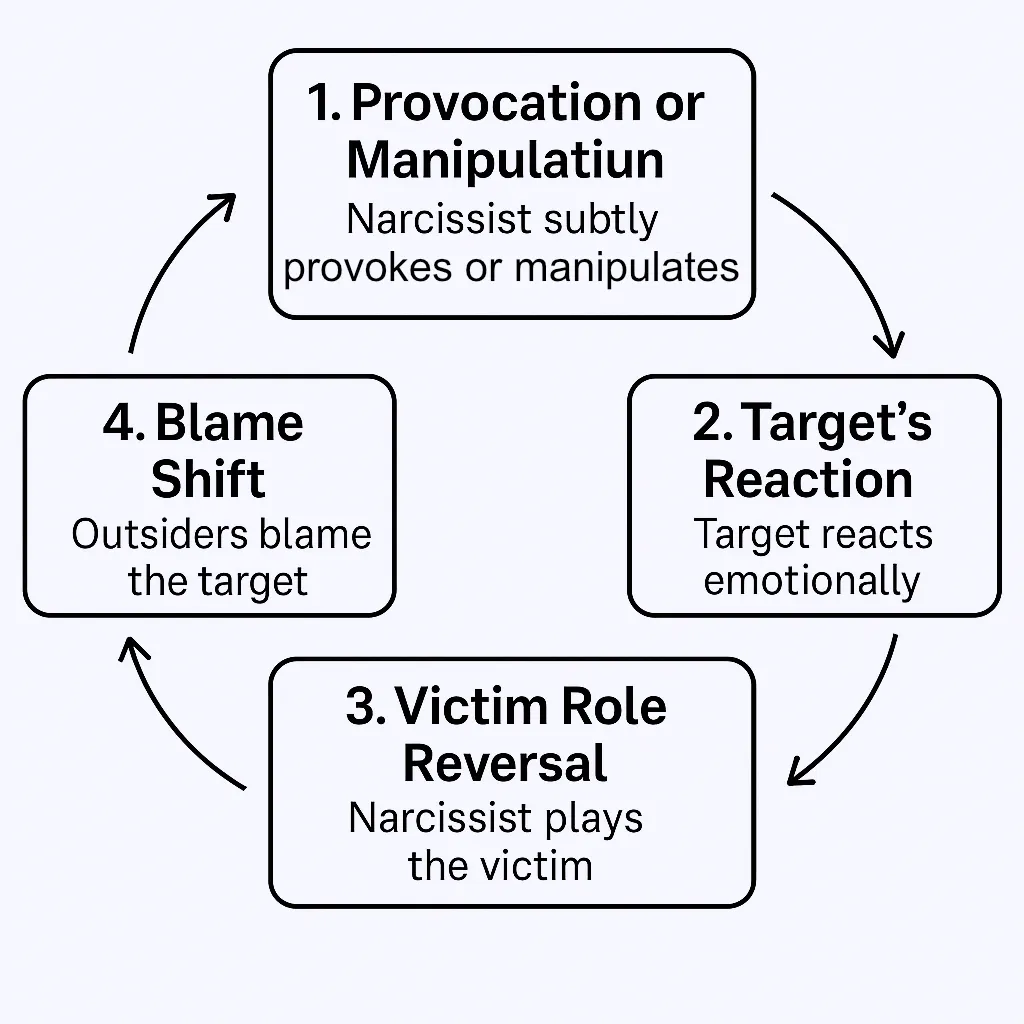9 Subtle Signs of a Covert Narcissist You Might Be Missing
What to expect in this article
Unmasking the Quiet Manipulator: 9 Key Signs of a Covert Narcissist
Hey there, thanks for stopping by. My name’s Oscar. I’m not a therapist or an expert, just a regular guy who, along with my wife Helen, stumbled into a confusing and painful situation a few years back. Sometimes, you meet people who leave you feeling drained. Or confused. Maybe you constantly second-guess yourself around them. It’s not always loud arguments or obvious cruelty; often, the difficulty lies in recognizing the subtle signs of a covert narcissist. It’s something quieter, harder to pinpoint.
It took a difficult experience with a couple Helen and I knew – let’s call them Tim and Tracy – for me to really start understanding these hidden dynamics. What we experienced felt baffling at the time. Only later did the term “covert narcissism” start making sense of the confusion.
If you’ve ever felt that way – confused, minimized, or like you’re walking on eggshells around someone seemingly nice – you’re not alone. This post is about shedding light on the common signs of a covert narcissist. My hope is that by sharing what I’ve learned, maybe you can recognize these patterns too, feel less isolated, and start finding your way back to solid ground.
The Big Difference: Overt vs. Covert Narcissism
First off, what makes “covert” different? Most of us picture a narcissist as someone loud and grandiose. They crave the spotlight, brag openly, and seem obviously arrogant. That’s often called overt narcissism. Think of a flashy car with a loud engine – you see and hear it coming.
These individuals share the same core traits – a deep need for admiration, a sense of entitlement, and a profound lack of empathy. But they hide it behind a different mask.
Covert narcissism is sneakier. These individuals share the same core traits – a deep need for admiration, a sense of entitlement, and a profound lack of empathy. But they hide it behind a different mask. They might seem shy, anxious, sensitive, humble, or even like a victim. It’s like a hidden trapdoor instead of a slammed door.
This hidden nature is what makes covert narcissism so confusing. It chips away at your sense of reality slowly. You might excuse their behaviors or blame yourself because they don’t fit the loud narcissist stereotype, making it much harder to clearly see the signs of a covert narcissist.
Takeaway:
The key difference lies in presentation: overt narcissists are openly grandiose, while covert narcissists hide their entitlement and lack of empathy behind masks like shyness or victimhood. This hidden nature makes covert narcissism especially confusing and damaging.
Sign 1: Super Sensitive to Criticism (But Not How You’d Expect)
One of the biggest clues is an extreme sensitivity to criticism. Even gentle feedback or a simple suggestion can feel like a major attack to them. Their fragile self-esteem just can’t handle it.
But their reaction isn’t always explosive like an overt narcissist’s might be. Instead, they might withdraw into sullen silence. They could become sarcastic or subtly defensive. Maybe they give you the silent treatment or turn the tables with guilt.
I remember this with Tim at the non-profit we were involved in. When suggesting he follow established team procedures, direct anger was rare. Instead, it was deflections like, “Sorry, I didn’t know,” or, “Sorry you guys take it that way.” It subtly shifted the blame, making it feel like we were being unreasonable for simply asking for teamwork. It reminded me of that first time I showed him our apartment – a weird feeling like he was judging me, subtly communicating he was above needing basic explanations.
Takeaway:
Covert narcissists react poorly to criticism, often not with overt anger, but with withdrawal, sullenness, passive-aggression, or subtle defensiveness. They frequently shift blame, making the person giving feedback feel unreasonable.
Sign 2: The Art of Passive-Aggression
Because direct confrontation feels too exposing or risky, covert narcissists often rely on passive-aggression. This means expressing negative feelings indirectly. Think backhanded compliments (“That dress is nice, it’s brave of you to wear that color!“). Or maybe they procrastinate on purpose, conveniently “forget” important things, or use subtle sabotage.
It’s a way to exert control or express displeasure without taking responsibility. If you call them out, they can easily deny it: “I didn’t mean it like that!” or “You’re being too sensitive.”
A painful example for Helen and me was a dinner invitation. We invited Tim and Tracy. Helen got sick, so I called Tim to reschedule for later that week. He agreed. Come Friday, Tim shows up alone. His reason? He “forgot” to tell Tracy about the rescheduled dinner, and she’d made other plans. It felt unbelievable. How do you tell someone dinner is off without mentioning it’s moved? It felt like a deliberate, passive-aggressive way to devalue us and our effort, making us feel insignificant. His casual “oops, I forgot” attitude just amplified the hurt.

Takeaway:
A core tactic is expressing negativity indirectly through actions like backhanded compliments, purposeful procrastination, or “forgetting.” This allows them to exert control or show displeasure while maintaining plausible deniability and avoiding direct responsibility.
Sign 3: Quietly Feeling Superior
While they might not boast loudly, covert narcissists often carry a hidden sense of superiority. Deep down, they believe they are special, smarter, or more unique than others, often feeling misunderstood by a world that doesn’t appreciate their supposed depth.
This doesn’t always show up in words. It might be in their body language – dismissive sighs when someone else is talking, eye-rolling, acting perpetually bored by topics or people they deem “beneath” them. It’s a subtle way of communicating, “I’m better than this.”
Tim showed this early on. When he first joined the non-profit, before knowing anything about its operations, he immediately criticized how it was run, implying he knew better. There was no evidence for this, just an underlying assumption of his own superior insight. It confirmed that initial gut feeling I had – this guy quietly thinks he’s above everyone else.
Takeaway:
Despite not boasting openly, these individuals harbor a hidden belief that they are inherently better or more special than others. This often manifests subtly through dismissive body language or an air of aloofness.
Sign 4: Playing the Victim (The “Poor Me” Narrative)

A common tactic is framing themselves as the victim. They might constantly talk about how they’ve been wronged, misunderstood, or how life is unfair to them. This often goes hand-in-hand with blame-shifting. It’s rarely, if ever, their fault when things go wrong.
This makes resolving conflict almost impossible. How can you work through an issue if the other person refuses to take any responsibility?
Helen and I saw this play out socially. Tim and Tracy would sometimes subtly provoke us or push our buttons, often when our mutual friends were around. When we inevitably reacted (maybe not perfectly, but understandably), they would instantly shift into wounded victim mode. Suddenly, we looked like the unreasonable, overly sensitive ones to our friends. It was incredibly effective at painting us as the problem.
Takeaway:
They frequently frame themselves as victims of circumstances or others’ actions, making it difficult to hold them accountable. This pattern of blame-shifting makes resolving conflict almost impossible.
Sign 5: The Conversation Hijacker (Subtle Self-Absorption)
Ever leave a conversation feeling like you barely got a word in, even if the other person seemed polite? Covert narcissists can be masters at subtly steering conversations back to themselves. Their experiences, their feelings, their problems always seem to take center stage.
If the topic shifts away from them for too long, you might notice them glaze over, seem bored, or quickly find a way to relate it back to their own life. It’s not always obvious, but the pattern is that their needs and narratives dominate. You might walk away feeling unheard or simply unimportant. It’s a quiet kind of draining.
Takeaway:
Interactions tend to revolve around them, even if subtly, often leaving others feeling unheard or unimportant. They may seem disengaged or bored when the conversation isn’t focused on their experiences or feelings.
Sign 6: Empathy That Doesn’t Feel Real
This one is tricky. Covert narcissists can seem empathetic. They might listen intently, offer words of comfort, or even share their own vulnerabilities. However, experts talk about “cognitive empathy” versus “emotional empathy.” They might intellectually understand what you’re feeling (cognitive), but they don’t truly feel it with you (emotional).
This apparent empathy is often a tool. It can be used to gain trust, gather information, make you feel indebted, or manipulate you through guilt (“After all I’ve done for you…”). Sometimes, they feign concern strategically.
Looking back, Tracy’s complete lack of inquiry about Helen’s health after the dinner cancellation struck us. It wasn’t overt meanness; it was just… a blank space where you’d expect some human concern. It felt hollow. Later, observing Tim sometimes quickly conferring with Tracy before making a move that undermined us in the non-profit felt less like teamwork and more like strategic planning, devoid of genuine consideration for us.
This kind of manipulation can sometimes involve gaslighting.

Takeaway:
Any display of empathy is often superficial, learned intellectually rather than felt emotionally (“cognitive empathy”). It can be used strategically as a tool for manipulation, trust-building, or guilt-tripping, rather than stemming from genuine concern.
Sign 7: Secretly Jealous (Hidden Envy)
While overt narcissists might openly express disdain for others’ success, covert narcissists often harbor deep, hidden envy. They might resent others’ happiness, achievements, relationships, or possessions, constantly comparing themselves and feeling slighted.
This envy often stays hidden, simmering beneath the surface. It might leak out as faint praise (“Must be nice…”) or subtle digs disguised as observations. This envy can fuel a desire to undermine or even “take over” what others have.
For Helen and me, this felt intensely personal with Tim and Tracy and our friend group. It didn’t feel like they just wanted to join our circle; it felt like they needed to possess it. Their efforts seemed geared towards replacing us entirely, culminating in that awful feeling of being actively erased from our own social lives. It wasn’t enough to share; they seemed to need it all.
Takeaway:
Deep-seated envy towards others’ happiness, success, or possessions often simmers beneath the surface. This hidden resentment can fuel passive-aggressive digs or actions aimed at undermining those they envy.
Sign 8: Turning Friends Against You (The Art of Social Isolation)
This flows directly from envy and the need for control. One of the most painful signs of a covert narcissist is their ability to manipulate your social circle and turn people against you. They need allies (“flying monkeys“) and work hard to isolate anyone they see as a threat or rival.

How do they do it? It starts with grooming. They shower mutual friends with attention, praise, and invitations, making themselves seem like the most fun, caring people around. Tim and Tracy were brilliant at this. Simultaneously, they might subtly poison the well against you, twisting past events or planting seeds of doubt about your character. This kind of social manipulation, while devastating, is one of the key signs of a covert narcissist aiming to control their environment.
Then comes the loyalty test. They often create situations where friends are forced to choose, but the choice is cleverly disguised. It might appeal to the friends’ self-interest, convenience, or fear of missing out (FOMO).
The big one for us was the overseas trip Tim and Tracy organized. They invited all our mutual friends… except us. It wasn’t an explicit “you’re not welcome,” just a pointed omission. Our friends were faced with a choice: go on this amazing, fun trip with T&T, or question why Helen and I were excluded and potentially miss out. Most chose the trip. It was easier to overlook the awkwardness than to rock the boat or potentially lose their spot in the “fun group.”
It’s a bit like kids befriending a bully just so they don’t become the next target. But with Tim and Tracy, it was far more subtle. No one would have called them bullies; they were charming! They had this incredible superpower for concealing their true motives, making it almost impossible for others to see the manipulation clearly. The result? We were left isolated, feeling betrayed not just by T&T, but by friends who chose perceived fun over loyalty.
Takeaway:
A particularly damaging tactic involves manipulating the social environment to isolate their target. They achieve this by grooming mutual friends and creating “loyalty tests” that often force friends to choose, frequently appealing to self-interest or fear of missing out.
Sign 9: Fishing for Praise (Indirect Validation Seeking)
Even though they seem humble or self-effacing, covert narcissists still crave admiration. They just seek it indirectly. They might put themselves down (“Oh, I’m hopeless at this…”) hoping you’ll jump in with reassurance and praise.
They might also perform acts of service or offer help, but the underlying motivation is often to be seen as indispensable, generous, or heroic – to gain that validation they desperately need. Early on, some of Tim and Tracy’s “friendly gestures,” like small favors, felt genuine. Later, looking back, they seemed more like calculated moves to build goodwill they could cash in later, rather than acts of real friendship.
Takeaway:
While appearing humble, they still crave admiration but seek it indirectly. This can involve using false modesty to elicit compliments or performing favors primarily to gain recognition and feel indispensable.
What Now? Finding Your Footing Amidst the Confusion
Realizing you might be dealing with these signs of a covert narcissist can be overwhelming and deeply unsettling. Especially when their behavior is so subtle and deniable. Please know, your confusion and hurt are valid.
So, what can you do? There are no magic wands, but here are a few steps that helped me find my footing:
- Trust Your Gut: That nagging feeling that something isn’t right? Listen to it. Your intuition is often picking up on subtle cues long before your logical brain can piece it together.
- Set Clear Boundaries: Decide what behavior is acceptable to you and what isn’t. Communicate these boundaries calmly but firmly. Expect pushback, testing, or claims of being “unfair.” Stick to them anyway. (Looking back, I wish we’d been much firmer about boundaries when T&T stayed in our apartment.)
- Document Incidents: When things feel confusing or like gaslighting, jot down brief, factual notes of what happened (dates, times, specific words/actions). This isn’t about dwelling; it’s about staying grounded in reality when someone tries to twist it.
- Seek Outside Support: Talk to trusted friends, family members, or a therapist who are outside the dynamic and can offer an objective perspective. Don’t rely on mutual friends who might be influenced.
- Prioritize Self-Care: Dealing with this kind of manipulation is exhausting. Make time for things that recharge you, whether it’s hobbies, exercise, nature, or quiet time. It’s not selfish; it’s essential for survival and recovery.
- Remember: It’s Not Your Fault: Their behavior isn’t caused or controlled by you, and it won’t be cured either. Focus on what you can shape—your own responses and choices.
Support is available. Organizations like the National Alliance on Mental Illness (NAMI) offer resources and helplines: https://www.nami.org
Setting boundaries is crucial. You can find more tips here: Setting Boundaries with Narcissists: A Practical Guide
Takeaway:
Key steps forward involve trusting your intuition about the situation and documenting incidents to counter potential gaslighting. Setting firm boundaries, seeking support from people outside the dynamic, and prioritizing self-care are vital, remembering always that their behavior is not your fault.
Conclusion: Seeing Clearly, Moving Forward
Covert narcissism is real, it’s hidden, and it can cause immense pain. Recognizing the signs of a covert narcissist – the sensitivity, the passive-aggression, the victim narrative, the subtle manipulation – is the first, powerful step toward breaking free from the confusion.
If any of this resonates with you, please know you are not crazy, and you are definitely not alone. Healing takes time, patience, and a lot of self-compassion. But gaining clarity is like switching on a light in a dark room. It doesn’t instantly fix everything, but it allows you to see the path forward.
Be incredibly kind to yourself through this process. You’ve likely been through a lot, and you deserve peace and relationships built on genuine respect and care.
Thanks for reading. If you feel comfortable, please share this article. Spreading the word to each other can make a world of difference. You’ve got this.
Warmly,
Oscar







